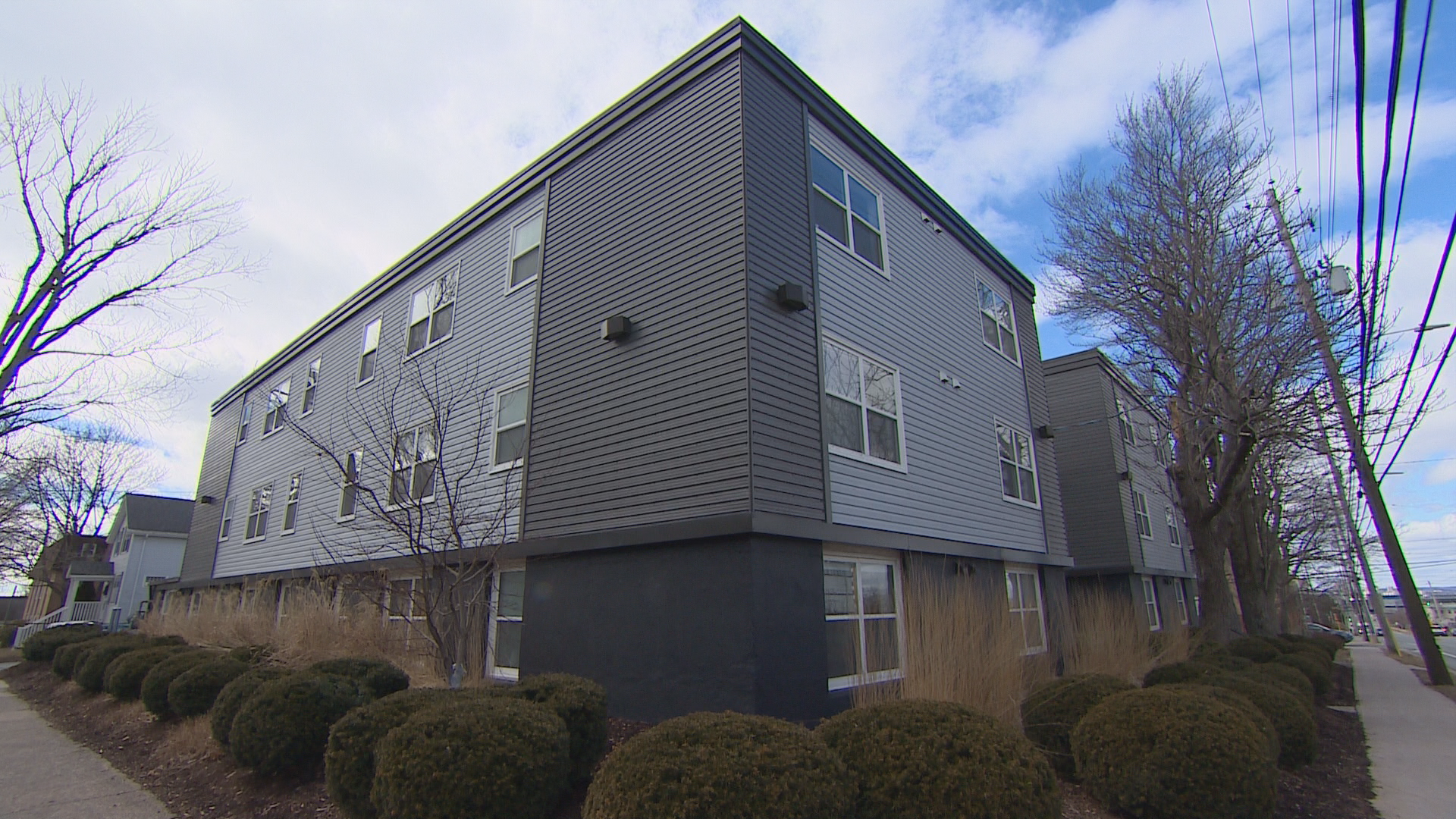A Halifax tenant says he’s being forced out of his home in a lease “loophole” allowing landlords to increase the rent.

Jonathan Hird, a photography student, came home from class one day earlier this year to a note on his door, “which is usually not a good thing,” he said.
He’s been renting a one-bedroom apartment in the north end of Halifax, owned by Peppermint Properties, since September of 2021 on a fixed-term lease.
Hird was shocked to read the note informing him the landlord does not wish to renew his lease after it expires at the end of the summer.
“I’ve had no issues as a tenant, no complaints, haven’t missed rent,” Hird said.
“As I looked around the building, I saw six or seven other people who got these notices, that their leases are not going to be renewed. They have to vacate the building at the end, and they have no options to stay in their apartments, pretty much.”
Hird said he initially signed an annual lease with the property management, but after his first year there, they decided to change it to the fixed-term lease.
“I hadn’t really heard much of fixed-term leases, I didn’t see much online so I just decided to, as it was what they were offering me, it seemed easy,” Hird said.
“Looking back on that now, I realize that was a mistake.”
- Premier Moe responds to Trudeau’s ‘good luck with that’ comment
- Drumheller hoping to break record for ‘largest gathering of people dressed as dinosaurs’
- As Canada’s tax deadline nears, what happens if you don’t file your return?
- Planning a summer trip to Quebec’s Îles-de-la-Madeleine? You’ll have to pay up
Peppermint Properties, owned by Louis Wolfson, has not responded to a request for comment in time for publishing.
Fixed-term leases allow landlords in Nova Scotia to skirt the current two-per cent cap on rent increases, as it only applies to existing tenants and ongoing leases.
The rent cap was first introduced in the province during the state of emergency brought on by the COVID-19 pandemic. After it was extended by Premier Tim Houston, the cap was set to expire at the end of this year. However, last week the government announced a new temporary rent cap of five per cent per year will be in place through 2024 and 2025.
Hird said Peppermint Properties had told him “they had plans for the building.” After some pestering, he said, he didn’t get any information.
“After a few months, I saw my exact unit being posted online,” the student said. The price had been raised by 28 per cent. “So the plans for the building were to make more money.”
Hird said he is grateful he has until August to find a new home, as some in the same building have to be out by April.
However, it’s been two years since Hird was last apartment-hunting; prices have since skyrocketed.
“It’s very rough,” he said. “Anything on the peninsula for a one-bedroom, you’re looking at least $1,600. A studio is around $1,350, which is actually what I should have been paying had they kept me on with the rent cap.
“There’s nothing available in the city. Luxury condos are popping up like nobody’s business, but nothing that I can afford.”
Fixed-term leases a ‘loophole’
Katie Brousseau, a community legal worker at Dalhousie Legal Aid, said she sees tenants on a nearly-daily basis dealing with fixed-term lease questions.
“You could be a textbook, A+ tenant and, at the end of the day, there are no legal protections for a tenant that’s on a fixed-term lease. And that’s the very unfortunate bottom line here, and that’s the essence of the loophole.”
Brousseau said landlords use this strategy “all the time,” adding the government has not acknowledged the “very serious problem.”
Some provinces do have protections for tenants when it comes to fixed-term leases.
In British Columbia, a landlord can only require a tenant to move out at the end of a fixed-term tenancy agreement if the tenancy agreement is a sublease, or the landlord or their family member is moving into the unit for at least six months.

Brousseau said until there are such protections in Nova Scotia, the “loophole” will continue to be abused.
“So long as the investment is prioritized or the investment is protected but not the rights of the tenant, I fear this situation will just continue to decline as it has for quite some years now,” she said.
After legislature on Tuesday, Minister Responsible for the Residential Tenancies Act Colton LeBlanc acknowledged potential protections such as those in B.C.
“We want to make sure that what’s being implemented in Nova Scotia meets the needs of tenants and landlords in Nova Scotia,” LeBlanc said.
“Perhaps solutions that are implemented in one jurisdiction could be used here, and perhaps it might not meet the needs or be suitable for Nova Scotia.”
Meanwhile, Jonathan Hird hopes his experience serves as a warning to other renters in the city.
“Do not sign a fixed-term lease,” he said.
“It’s not for your benefit and if you’re offered, just know that they’re going to be booting you out of there once it’s done.”






Comments